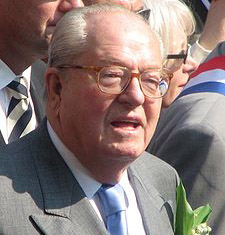European Court Finds Application of Jean-Marie Le Pen Inadmissible

April 2010 – Strasbourg
In a decision rendered on 20 April 2010, the European Court of Human Rights has found the application of M. Jean-Marie Le Pen, president of the French “National Front” party, to be inadmissible. For statements made about Muslims in France in a 2005 interview with Le Monde daily newspaper, Le Pen was fined 10,000 euros for “incitement to discrimination, hatred and violence towards a group of people because of their origin or their membership or non-membership of a specific ethnic group, nation, race or religion.” In 2008 the French Court of Appeal held that Le Pen’s freedom of expression was no justification for statements that were an incitement to discrimination, hatred, or violence towards a group of people, and fined him again. In 2009 the French Court of Cassation dismissed Le Pen’s appeal, rejecting his arguments that his statements were not an explicit call for hatred or discrimination and did not single out Muslims because of their religion. His reference to Islam, Le Pen argued, was not aimed at a religious faith but at a political doctrine.
In its unanimous rejection of his application, the European Court found legitimate the French authorities’ interference with M. Le Pen’s freedom of expression as “necessary in a democratic society” to protect the reputation or rights of others. While reiterating the importance of freedom of expression in the context of political debate in a democratic society, which expression might legitimately involve a degree of exaggeration, or even provocation, the Court noted that when the speaker was an elected representative, as in this case, the Court must exercise “the strictest supervision of interferences with … freedom of expression.” As the applicant’s statements had been made in the context of a general debate on problems of varying scale linked to the settlement and integration of immigrants in their host countries, problems “which could sometimes generate misunderstanding and incomprehension,” the state should have considerable latitude in assessing the need for interference with individual freedom of expression. Finding that M. Le Pen’s comments had presented the “Muslim community” as a whole “in a disturbing light that would likely to give rise to feelings of rejection and hostility,” the Court observed that the effect was to set the French against “a community whose religious convictions were explicitly mentioned and whose rapid growth was presented as an already latent threat to the dignity and security of the French people.”